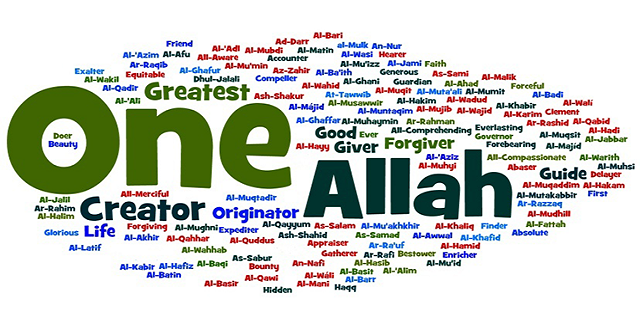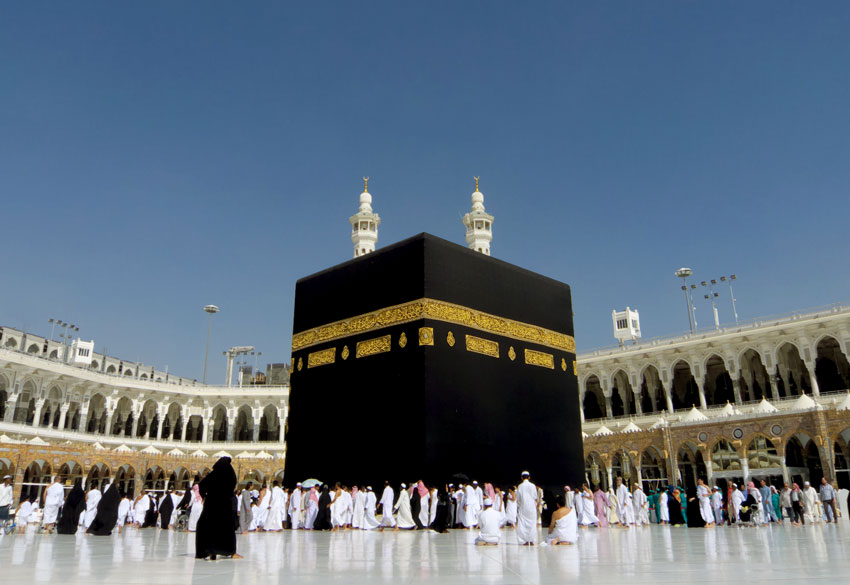
It is rare to find someone who has not asked himself or others the question: “What is the purpose of our creation?” A group of people continuously come into this world while another group leave it, becoming extinguished for ever – what is the idea behind this coming and going?
If we humans had not been living on this planet, what difference would it have made? Is it necessary for us to know why we have come and why we shall go? If we discover the reason, do we have the ability to acquire this objective? Subsequent to this question, numerous other questions loom, plaguing man’s mind and thoughts.
Whenever the materialists ask themselves this question, they apparently cannot answer it since matter does not possess perception and intellect for it to pursue an objective. Hence, they have put themselves at ease in this regard by convincing themselves of the insignificance of man’s creation!
Is it not strange that these people envision precise aims and plan systematic programs for the minute details of life such as education, job, work, treatment, medication and sports, but, when they view life as a whole, they considers it to be aimless?
Thus, it is not astonishing that when a group from amongst such people reflect upon these issues, they become discontented by this vain and purposeless life and consequently resort to suicide.
However, when a God-worshipping person asks himself this question, he never finds himself in despair. Primarily, he knows that the Creator of this world is Wise and therefore His act of creation is undoubtedly based on wisdom – although some men might not be aware of it; secondly, viewing every part of himself, he observes that each one possesses an objective. Not only the brain, heart, blood vessels and the nerves, but even the nails, eyelashes, fingerprints, the depressions in the palms and the feet; each has a philosophy attached to its presence which has been identified and proven today.
How naïvely we reflect when we consider all of these to individually possess a purpose but to collectively lack an objective!
What kind of absurd judgment it is that identifies an objective for the construction of each building within a city, yet denies the existence of any purpose for the city itself!
Is it conceivable that an engineer constructs a great building in which all the rooms, passages, doors, hatches, ponds, gardens and the décors have been meticulously built with a particular purpose in mind, whilst the building itself has been constructed without any objective?
These are the points which provide conviction to a believing person that this creation pursues a great objective, which he should strive to comprehend by means of his intellect.
Furthermore, it is amazing that when the advocates of the purposelessness of creation venture into the fields of physical sciences, they relentlessly endeavor to uncover the aim of various phenomena which they happen come across; so much so that they are unwilling to consider the insignificance of even one small gland situated in a corner of the body – experimenting for years to uncover the reason behind its existence. However, when it comes to the creation of man, they unequivocally claim it to be without an objective! What a bizarre contradiction!
In any event, belief in the Wisdom of Allah (s.w.t.) and attention towards the purpose of the various parts of man, imparts a firm conviction to us that there exists a great significance behind the creation of man.
Having comprehended this, we ought to strive to understand this purpose and, to the best of our abilities, set off towards achieving it.
Attention towards one fundamental point might serve to illuminate our path and thereby make our journey easier:
All of our actions are always motivated by an objective; and this goal usually involves combating our flaws and fulfilling our requirements. Even acts such as serving someone, helping a person in distress or practicing self-sacrifice; each serve to do away with shortcomings and fulfill our spiritual needs.
Accordingly, in contemplating the attributes and acts of Allah (s.w.t.) we usually blunder by comparing them with ours, often asking: What flaws and shortcomings did Allah (s.w.t.) possess that could possibly be eliminated by creating us? Or, when we read in the Qur’an, which states that the purpose of man’s creation is worshipping Allah (s.w.t.), we ask: Why does He need our worship? We do not realize that these thoughts stem from an erroneous comparison of the attributes of the Creator with the created.
Man indeed is a limited and confined entity which strives to do away shortcomings and hence concentrates its efforts towards achieving this objective. However, this concept is meaningless with respect to an Entity that is unlimited and infinite, and hence we ought to seek the objective and purpose of His acts in entities other than Him.
He is an abundant overflowing spring and the bounty-creating Originator who, having taken the entire creation within the canopy of His support, nourishes and fosters them, leading them from imperfection towards perfection. This is the actual purpose of our servitude (towards Allah (s.w.t.) ) and this is the philosophy of our worship and prayers, which are indeed training classes for leading us towards perfection.
Consequently we conclude that the purpose of our creation is the (achievement) of perfection of our selves.
Basically, the actual act of creation – that is to move from non-existence into existence, from a non-entity into an entity, from zero to a figure – is a huge step towards perfection, subsequent to which start the other phases that lead towards this goal, including the entire religious set-up which emphasizes this objective.1
—————————————————————
1. Tafsir-e-Namuna, vol. 22, pg. 389

















